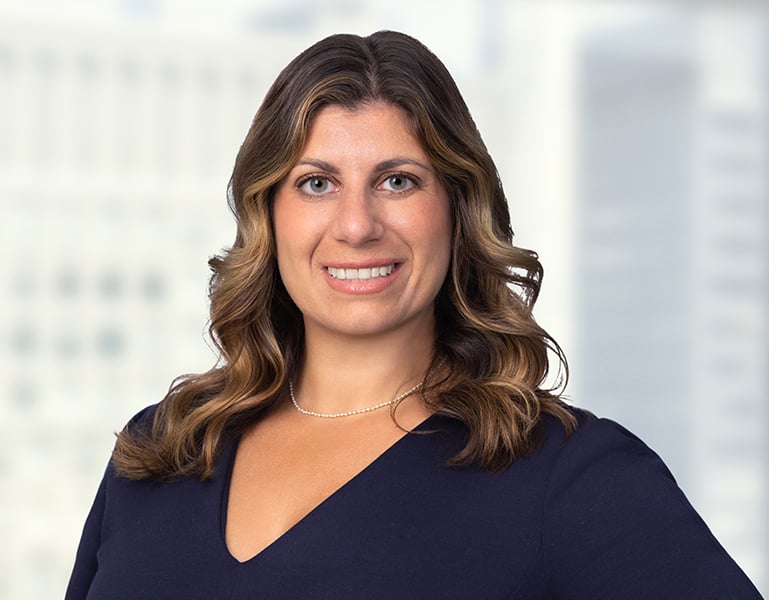IRS Publishes Proposed Regulations for the “No Tax on Tips” Provision of the OBBBA
As we reported here, the One Big Beautiful Bill Act (OBBBA) was signed into law on July 4, 2025, and includes a provision establishing a new tax deduction for “qualified tip income” for individuals who work “in an occupation which customarily and regularly receives tips.” The Treasury Department subsequently released a preliminary list of jobs eligible for the so-called “No Tax on Tips” deduction, previously discussed here. On September 19, 2025, the Internal Revenue Service (IRS) published proposed regulations, which provide additional guidance and clarification regarding which tips qualify for the new deduction.
What Constitutes a “Qualified Tip”
The OBBBA defines “qualified tips” as cash tips received by an individual in an occupation that customarily and regularly received tips on or before December 31, 2024. The proposed regulation clarifies that “cash tips” are tips that are (i) received directly from customers or through a mandatory or voluntary tip-sharing arrangement, such as a tip pool and (ii) paid in cash or by “check, credit card, debit card, gift card, tangible or intangible tokens that are readily exchangeable for a fixed amount in cash (such as casino chips),” or electronic or mobile application payment. Cash tips do not include items paid in any medium other than cash, such as event tickets, meals, services, or other assets that are not exchangeable for a fixed amount in cash (such as most digital assets).
“Qualified tips” must be paid voluntarily and do not include, for example, compulsory service charges and automatic gratuities.
What Constitutes “Occupations That Customarily and Regularly Received Tips”
The IRS compiled a list of “occupations that customarily and regularly received tips” using a detailed methodology that included a review of IRS data, legislative history and survey data regarding tipped occupations.
Workers are classified into eight occupational categories using a new categorization system created by the Treasury Department and the IRS called the Treasury Tipped Occupation Code (TTOC). The final list of specific jobs in each category is the same as the preliminary list.
Certain occupations, such as dishwashers and cooks, have been included even though not typically considered jobs that “customarily and regularly” receive tips for purposes of the Fair Labor Standards Act (FLSA). The IRS explained in its methodology that although these occupations may not involve direct interactions with customers, they contribute to the overall customer experience and should therefore be considered occupations that customarily and regularly received tips if they participate in tip-sharing arrangements with customer-facing employees. This is consistent with U.S. Department of Labor (DOL) guidance providing that employers may implement nontraditional tips pools requiring, e.g., “servers to share tips with non-tipped employees, such as dishwashers and cooks, but only if all workers receive a direct cash wage of at least the federal minimum wage.”
What to Expect Next
The IRS will receive public comments on the proposed regulations until October 22, 2025, and a public hearing is scheduled for October 23, 2025.
Employers should begin evaluating whether they have employees who fall within the IRS proposed definition of “occupations that customarily and regularly received tips” to ensure compliance with reporting regulations.
We will continue to monitor and report on further developments regarding the OBBBA. If you have any questions about the topics discussed in this article, please contact James P. Looby at jlooby@vedderprice.com, Gina E. Nicotera at gnicotera@vedderprice.com or any Vedder Price attorney with whom you have worked.
Vedder Thinking | Articles IRS Publishes Proposed Regulations for the “No Tax on Tips” Provision of the OBBBA
Article
October 8, 2025
As we reported here, the One Big Beautiful Bill Act (OBBBA) was signed into law on July 4, 2025, and includes a provision establishing a new tax deduction for “qualified tip income” for individuals who work “in an occupation which customarily and regularly receives tips.” The Treasury Department subsequently released a preliminary list of jobs eligible for the so-called “No Tax on Tips” deduction, previously discussed here. On September 19, 2025, the Internal Revenue Service (IRS) published proposed regulations, which provide additional guidance and clarification regarding which tips qualify for the new deduction.
What Constitutes a “Qualified Tip”
The OBBBA defines “qualified tips” as cash tips received by an individual in an occupation that customarily and regularly received tips on or before December 31, 2024. The proposed regulation clarifies that “cash tips” are tips that are (i) received directly from customers or through a mandatory or voluntary tip-sharing arrangement, such as a tip pool and (ii) paid in cash or by “check, credit card, debit card, gift card, tangible or intangible tokens that are readily exchangeable for a fixed amount in cash (such as casino chips),” or electronic or mobile application payment. Cash tips do not include items paid in any medium other than cash, such as event tickets, meals, services, or other assets that are not exchangeable for a fixed amount in cash (such as most digital assets).
“Qualified tips” must be paid voluntarily and do not include, for example, compulsory service charges and automatic gratuities.
What Constitutes “Occupations That Customarily and Regularly Received Tips”
The IRS compiled a list of “occupations that customarily and regularly received tips” using a detailed methodology that included a review of IRS data, legislative history and survey data regarding tipped occupations.
Workers are classified into eight occupational categories using a new categorization system created by the Treasury Department and the IRS called the Treasury Tipped Occupation Code (TTOC). The final list of specific jobs in each category is the same as the preliminary list.
Certain occupations, such as dishwashers and cooks, have been included even though not typically considered jobs that “customarily and regularly” receive tips for purposes of the Fair Labor Standards Act (FLSA). The IRS explained in its methodology that although these occupations may not involve direct interactions with customers, they contribute to the overall customer experience and should therefore be considered occupations that customarily and regularly received tips if they participate in tip-sharing arrangements with customer-facing employees. This is consistent with U.S. Department of Labor (DOL) guidance providing that employers may implement nontraditional tips pools requiring, e.g., “servers to share tips with non-tipped employees, such as dishwashers and cooks, but only if all workers receive a direct cash wage of at least the federal minimum wage.”
What to Expect Next
The IRS will receive public comments on the proposed regulations until October 22, 2025, and a public hearing is scheduled for October 23, 2025.
Employers should begin evaluating whether they have employees who fall within the IRS proposed definition of “occupations that customarily and regularly received tips” to ensure compliance with reporting regulations.
We will continue to monitor and report on further developments regarding the OBBBA. If you have any questions about the topics discussed in this article, please contact James P. Looby at jlooby@vedderprice.com, Gina E. Nicotera at gnicotera@vedderprice.com or any Vedder Price attorney with whom you have worked.
Professionals
-
Services

